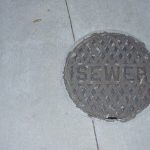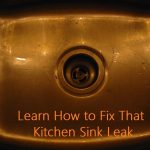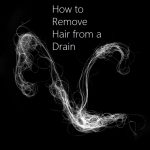For many homeowners, plumbing is an unknown quantity, and it’s one of those trades that is beyond even the most dedicated DIY enthusiast. For this reason, there a lot of misconceptions about plumbers and plumbing that many people believe without question. Adhering to these ideas can cause a person to waste time and money, and in extreme cases, it can even cause damage to their homes. In this article, we will look at five of the most popular plumbing myths and debunk them all.
- Sharpening Garbage Disposal Blades
Many people believe that it is possible to sharpen the blades in their garbage disposal unit by cutting up ice cubes or eggshells. But, this is not true; for a start, there are no blades inside your garbage disposal. The unit grinds, it does not cut in any way, and even if it did, ice cubes and eggshells cannot affect steel. A garbage disposal uses impellers that are mounted on a plate that spins against a stationary grinding ring. The interaction between the two plates and the centrifugal forces are used to grind up the waste material. As the grinding occurs, running water is applied to the plates to flush the now liquified material into the drain. This is why it’s important to avoid putting hard items such as bones into your garbage disposal unit.
- Flushable Wipes and Cat Litter Work Well
It’s always a good idea to read the label on any product and be careful about claims that are made. Many people now use “flushable” wipes to clean their toilets, and the label claims that they are flushable. Now technically, this is true, but in reality, they can then collect within the joints and junctions in your plumbing system where they become trapped. Material trapped in this manner is often a starting point for a significant clog that can be very tough to remove without professional help. In fact, “flushable” wipes are so bad for clogging that some that they have even jammed impellers in water treatment plants! Toilet tissue is designed to break down in water, and this is why it is safe to flush. But, any type of tissue that’s designed to hold water, such as a wipe or kitchen roll should not be flushed into the drain. Flushable cat litter is another recent innovation that simply doesn’t work, and all of these products should be placed in the trash instead.
- Hot Water Can Melt Grease and Clear Your Pipes
At first glance, this seems to be sound advice, after all, hot water does melt grease and oil deposits. But, although the grease will melt, it will not stay in that state for very long as it is flushed further into your drain system. The grease will cool quickly and harden to create a more formidable clog that is hard to reach and clear without professional help. The best way to deal with grease and oil is to adopt a preventative mindset and keep it out of the drain altogether. Grease and oil should be disposed of responsibly in a recycling area or in the trash. If some grease does enter the drain, don’t attempt to melt it with hot water and turn the cold water on instead. This will cause the grease to harden closer to the drain entrance, and this will make it easier to reach. Then you can manually clear the clog with a plumbing snake or contact a local certified plumber to remove it for you.
- Showering During a Thunderstorm is Safe
This sounds like an urban legend or a horror story, but there is a very slight chance that you could be electrocuted if you take a shower during a thunderstorm. The metal pipes in our homes conduct electricity, so theoretically, a lightning strike could travel through your plumbing system an electrocute someone in the shower. In fact, this phenomenon can occur in other areas of the home too. Some people have received a shock taking a bath, doing their laundry, and even washing dishes. If there is a thunderstorm raging outside, it’s a better idea to snuggle under a blanket and leave everything else until the storm has passed.
- A Chemical Drain Cleaner is Safe to Use
There are many chemical drain cleaning products on the market, and for many people, this is their first response to a clogged drain. Some chemicals can be an effective method if the drain is not fully clogged and if they are used correctly. But, this is hard to do. After all, we don’t have much of an idea of what is happening in the drain without a camera inspection. A cursory glance at the label of any of these products will reveal safety warnings for your skin and lungs. These chemical cleaners contain hard caustic chemicals that are designed to melt debris in your drain. These same chemicals can also hard your plumbing pipes, weakening them and causing damage. If you get these chemicals on your skin, they can cause burns, and you should never use a plunger if you’ve put this type of cleaner in the drain.
The best way to deal with clogs is to prevent them by adding a drain cover to each drain in your home and being careful what goes into the drain. Every professional plumber prefers to use a manual method to remove a clog, such as a plunger or a plumbing augur (drain snake). For this reason, it’s a good idea to have a cup plunger and an augur in your toolbox at home. Removing mild clogs is pretty easy, but if you find that the clog is hard to remove or it’s persistent, and it returns regularly, contact your local plumber. There may be an underlying issue to resolve that’s causing the clog to form, and deeper clogs are hard to remove without specialized equipment.
As you can see, many plumbing myths are simply not true, and if you need expert plumbing help, contact your
local certified plumber today.
By Giovanni Longo President Flood Brothers Plumbing
Giovanni Longo is a 3rd generation master plumber who has been practicing his craft and trade in the greater Los Angeles area for well over a decade and a half. A plumbing and hydraulics-engineering innovator, Giovanni’s particular world-class expertise focuses on dealing with challenging sewer system designs as well as resolving complex commercial and residential draining issues. As a certified Flood Mitigation expert, he is also well versed in a wide variety of water damage and remediation solution.





